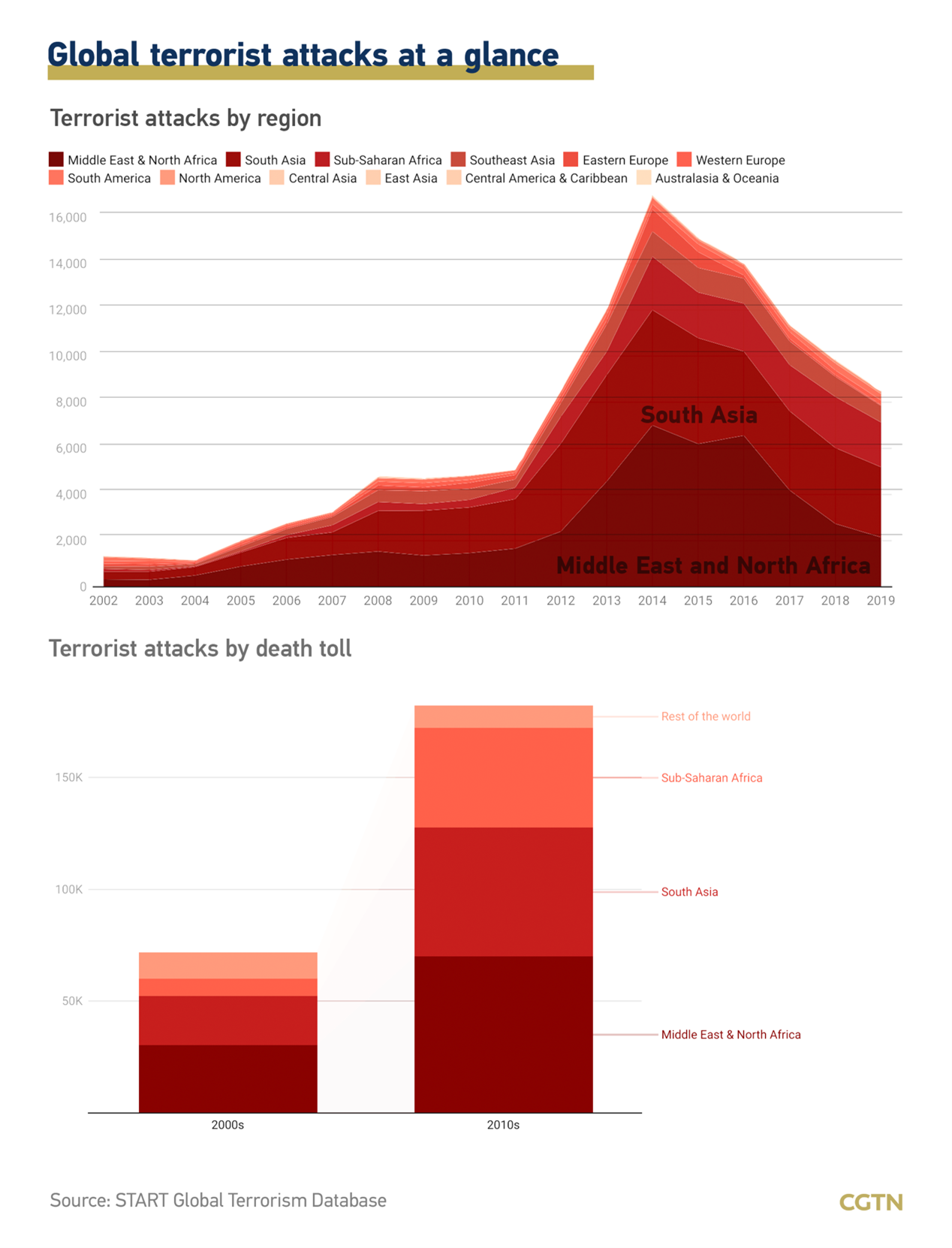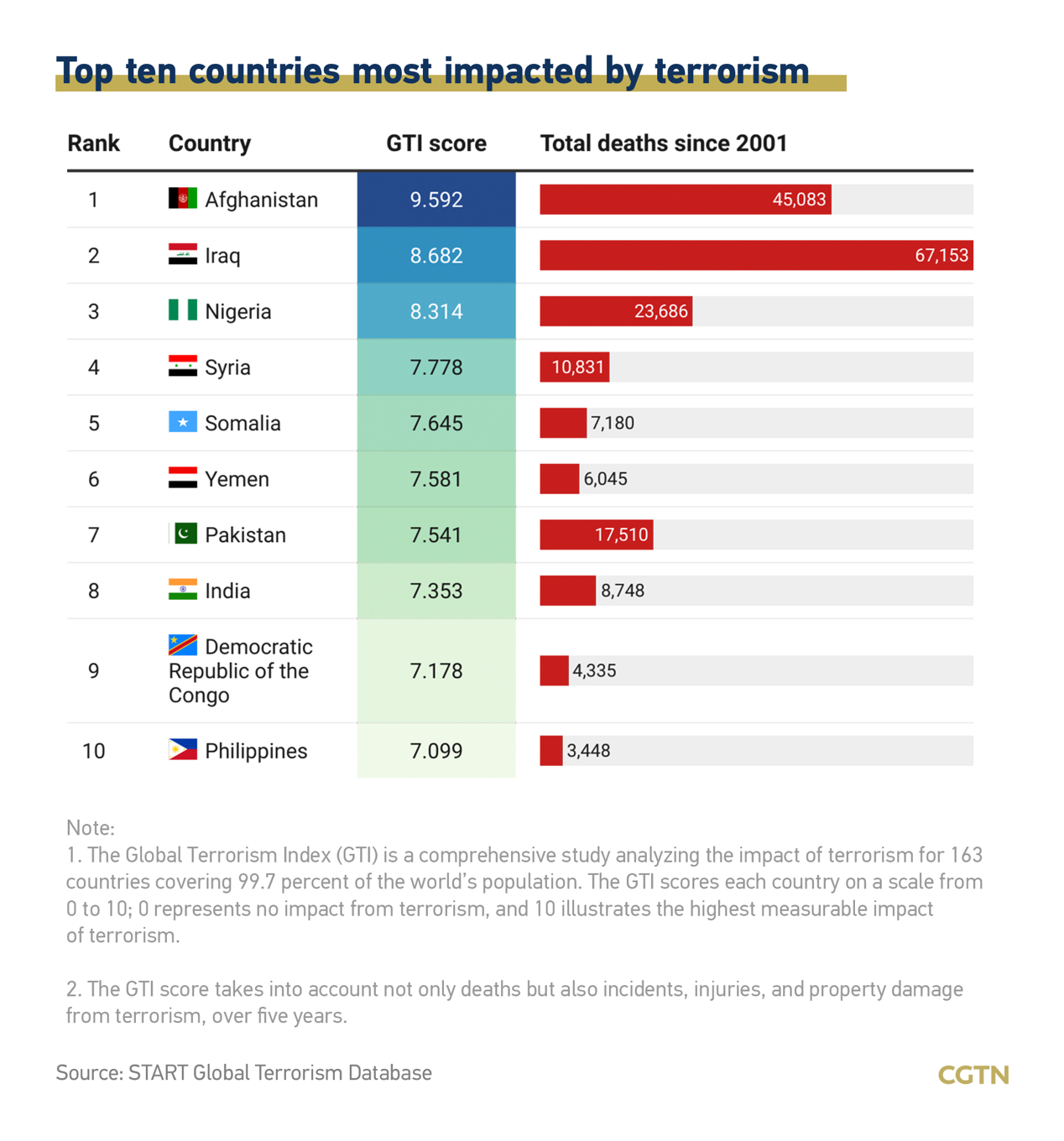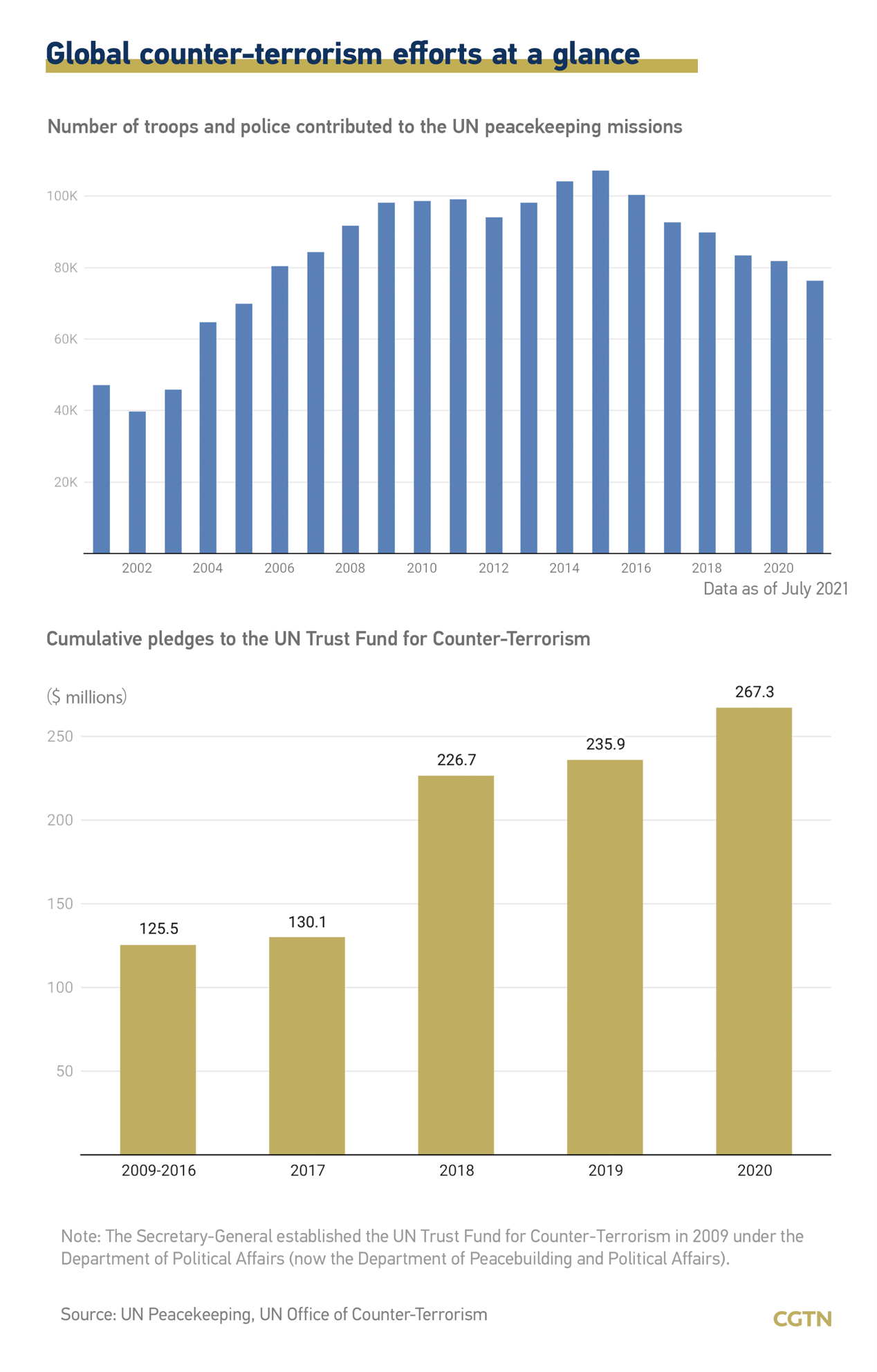Amid the cheers of the Taliban, the curtain drew on the Afghan war, the longest of its kind in U.S. history, on August 31 when the last batch of American soldiers left Afghanistan.
The war lasted through four U.S. presidencies, cost the lives of 2,500 soldiers and 71,000 civilians, and had an estimated price tag of more than $2 trillion.
After its ignominious end, many failed to recall the original purpose of the war – to fight terrorism. Now, 20 years after the 9/11 attacks, it's time to check the status of global efforts to counter terrorism.
Has terrorism faded away?
The explosion at Kabul International Airport in the dying days of the U.S. withdrawal gives a negative answer. The terrorist attack on August 26 killed at least 182 people, including 169 Afghan civilians and 13 U.S. service members. ISIS-K, an affiliate of the ISIS group active in Afghanistan, claimed responsibility.
As a report from Council on Foreign Relations pointed out, the ideology and motivation espoused by al-Qaeda, the planner of the 9/11 attack, did not fade away with the death of its founder and leader Osama bin Laden. On the contrary, the number of the Salafi-jihadi terrorist groups designated by the U.S. State Department has quadrupled since 9/11.

Moreover, even al-Qaeda, whose senior leaders were mostly killed or captured by the U.S. and its allies, is reportedly still in operation and is undergoing "unimpeded growth" in Africa and has a presence in Syria and at least 15 of Afghanistan's 34 provinces, according to the latest report from the United Nations (UN) monitoring team.
ISIS, one of the major terrorism threat actors worldwide, has "evolved into an entrenched insurgency" with an estimate of more than 10,000 terrorist fighters stationed in its core conflict zones in Iraq and Syria, the report said.
Terrorism prevails via social media
In the past 20 years, the spread of terrorism has also advanced with the times. Due to the fast development of the internet, more and more extremist groups are using social media platforms to spread extremist content and recruit "fighters."
More and more scholars have pointed out that social media has become a strategic tool and a key medium to communicate, spread information and carry out terrorism.
With the help of the free flow of information on social media platforms, terrorist groups can transcend geographical limitations and spread their extreme messages in the form of memes or images through online social communities.

And the easy access to social media allows terrorist groups to engage with their intended audience in real time, Professor Gabriel Weimann of the University of Haifa said in an interview with CBS. Nearly 90 percent of online terrorism activities take place via platforms like Twitter, Facebook and YouTube, he added.
Via these sources, terrorist groups recruit foreigner members to join their activities. In some cases, recruits have been sent abroad for training before returning to their home countries to carry out terrorist attacks.
Global efforts in counterterrorism
Despite all those, counter-terrorism efforts are not all in vain. In fact, the operations of al-Qaeda and ISIS have been limited by attacks on their leaders.
As the UN report disclosed, counter-terrorism efforts have damaged ISIS, within the Iraqi-Syrian core conflict zone, with the group having no direct communication between its leader Amir Muhammad Sa'id Abdal-Rahman al-Mawla and its supporters.
Thanks to the global strikes, ISIS is "progressively fleshing out its regional structures" in West Africa and the Sahel, East and Central Africa, Afghanistan and South Asia, the report said.

To combat terrorism, the UN set up the Office of Counter-Terrorism and launched a strategy to "enhance global efforts to counter terrorism" and curtail its spread.
The UN official website shows, as of December 31, 2020, the UN Trust Fund for counterterrorism had received $267.3 million from more than 34 donors.
Last year, 51 capacity-building programs to prevent and counter terrorism were implemented, involving 9,698 individuals from 175 member states.
Given the current trends of terrorism worldwide, the 20-year war in Afghanistan may have ended, but the global war on terrorism goes on.

